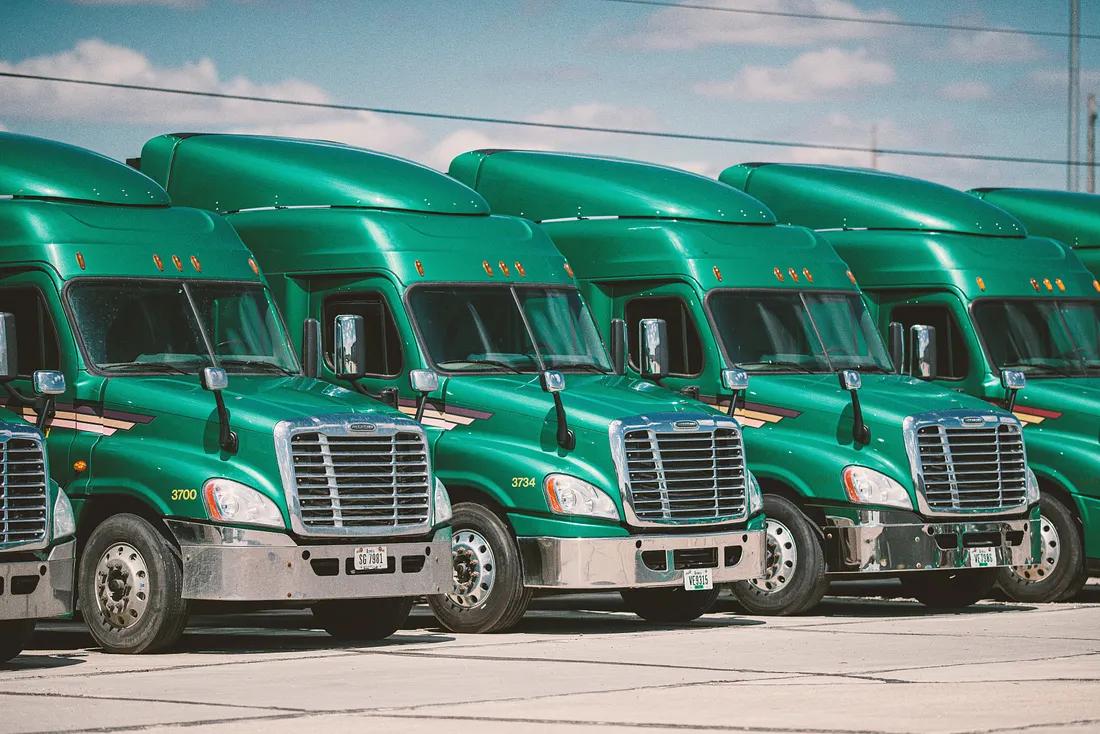
Mastering Full-Stack Deployment with Docker: DETL’s Blueprint for Scalable App Development
In today’s fast-paced development environments, container technology has revolutionized how applications are built, shipped, and deployed. At DETL, we specialize in full-stack deployment strategies that leverage Docker containerization, container orchestration, and DevOps tools to streamline development workflows and ensure infrastructure portability.
From AI-driven applications like Cap AI and Psyvatar to complex platforms like Hutsy and EMAS Toronto, our team has helped startups and enterprises unlock scalable, reliable deployment pipelines using modern containerization practices. In this guide, we’ll walk you through the real-world mechanics of deploying full-stack applications with Docker, including how to structure Dockerfiles, orchestrate services with Docker Compose, and apply container best practices to ensure performance and security.
Why Docker Containerization is Essential
Docker containerization offers a lightweight, portable way to package applications and their dependencies into isolated units that run consistently across any environment.
Benefits of Docker for Full-Stack Deployment
- Seamlessly integrates front-end, back-end, and database services
- Reduces “it works on my machine” issues
- Accelerates CI/CD with reproducible builds
- Supports microservices and monolithic architectures
- Simplifies scaling with orchestration platforms like Kubernetes or Docker Swarm
For instance, when building Cap AI—a social media caption generator that relies on a Node.js API, a Python NLP engine, and a React frontend—Docker allowed us to unify all the services into a standardized containerized environment, simplifying deployment and testing.
Setting Up Your Development Environment with Docker
Before diving into production deployment, a robust development environment is key. Docker makes it easy to replicate the same setup across teams.
Example: Dockerfile for a Node.js API
Here's a basic Dockerfile for containerizing a Node.js backend:
1# Use an official Node.js image
2FROM node:18
3
4# Set working directory
5WORKDIR /app
6
7# Copy dependencies and install
8COPY package*.json ./
9RUN npm install
10
11# Copy the rest of the app
12COPY . .
13
14# Expose application port
15EXPOSE 3000
16
17# Start the server
18CMD ["npm", "start"]This container image can be version-controlled and pushed to a container registry for later deployment via Docker Compose or Kubernetes.
Best Practices for Development Containers
- Use `.dockerignore` to exclude unnecessary files
- Avoid running containers as root
- Keep base images minimal to reduce image size
- Tag images with meaningful semantic versions
At DETL, we maintain custom base images for projects like EMAS Toronto to ensure reproducibility across development, staging, and production environments.
Managing Multi-Container Applications with Docker Compose
Docker Compose simplifies container orchestration during development by defining how services interact in a single configuration file.
For full-stack applications combining backend APIs, frontend UIs, and databases, Docker Compose allows developers to spin up the entire environment with one command: `docker-compose up`.
Example: Full-Stack Setup with Node.js, React, and MongoDB
1version: '3.8'
2
3services:
4 backend:
5 build: ./api
6 ports:
7 - "3000:3000"
8 depends_on:
9 - mongo
10 environment:
11 - MONGO_URI=mongodb://mongo:27017/myapp
12
13 frontend:
14 build: ./client
15 ports:
16 - "8080:80"
17
18 mongo:
19 image: mongo
20 ports:
21 - "27017:27017"With DETL projects like Hutsy and Psyvatar, Docker Compose enabled rapid iteration during development, allowing our teams to test cross-service interactions without setting up separate servers.
Building and Pushing Container Images
To prepare containers for deployment, build and push images to a registry like Docker Hub or GitHub Container Registry.
Common Workflow
1docker build -t myorg/backend:1.0 ./api
2docker tag myorg/backend:1.0 ghcr.io/myorg/backend:1.0
3docker push ghcr.io/myorg/backend:1.0Automating this with CI/CD platforms like GitHub Actions or GitLab CI ensures consistent image builds during pull requests and merges.
Deploying to Production: Orchestration Strategies
While Docker Compose is ideal for local development, production deployments benefit from container orchestration platforms.
Docker Swarm vs. Kubernetes
- **Docker Swarm**: Built-in clustering that’s simpler to set up, good for smaller teams
- **Kubernetes**: Industry-standard orchestration solution, offering autoscaling, rolling updates, and fault tolerance
DETL deployed Absolute Football Training's backend using Docker Swarm for ease of management while containerizing the frontend on AWS ECS for global availability.
Minikube Example: Local Kubernetes Testing
1minikube start
2kubectl create deployment backend --image=myorg/backend:1.0
3kubectl expose deployment backend --type=NodePort --port=3000These strategies allow development teams to emulate production behavior in isolated environments before scaling to real infrastructure.
DevOps Integration for Continuous Deployment
Relying on Docker unlocks powerful DevOps pipelines. At DETL, we adopt GitOps and CI/CD workflows to automate build, test, and deployment using tools like:
- GitHub Actions
- ArgoCD or Flux for Kubernetes GitOps
- Docker and Helm for managing releases
GitHub Actions CI Example
1name: Build and Push Docker Image
2
3on:
4 push:
5 branches: [main]
6
7jobs:
8 build:
9 runs-on: ubuntu-latest
10 steps:
11 - uses: actions/checkout@v3
12 - name: Log in to GitHub Container Registry
13 run: echo "${{ secrets.GITHUB_TOKEN }}" | docker login ghcr.io -u ${{ github.actor }} --password-stdin
14
15 - name: Build
16 run: docker build -t ghcr.io/myorg/backend:latest ./api
17
18 - name: Push
19 run: docker push ghcr.io/myorg/backend:latestThis configuration automates the application deployment cycle, giving teams confidence in consistent infrastructure and code delivery.
Container Best Practices from the Field
After integrating Docker into projects across verticals—from AI to fintech—our team has compiled several cornerstone practices for successful application deployment:
- **Use multi-stage builds** to reduce image size (especially for languages like Go and Angular)
- **Secure secrets** using `docker secrets` or third-party vaults
- **Automate health checks** in orchestrators for service recovery
- **Log to stdout/stderr** for centralized container logging
- **Version container images clearly**, referencing them in Docker Compose or Kubernetes manifests
These containerization strategies helped ensure reliability and portability across our most demanding projects like Psyvatar, where uptime and data consistency were mission-critical.
Real-World Detl Deployments: Lessons Learned
Across DETL’s portfolio, we've containerized applications at virtually every layer of the tech stack:
- **Cap AI**: Bundled PyTorch NLP engines with REST APIs and React components in a multi-container architecture, deployed via Docker Compose and GitHub Actions.
- **Hutsy**: Containerized financial data pipelines for rapid iteration using Docker Swarm in staging and Kubernetes in production.
- **Psyvatar**: Employed container best practices to ensure secure, HIPAA-compliant mental health app environments.
- **EMAS Toronto**: Standardized on Docker containers to scale digital tools for community engagement.
- **Absolute Football Training**: Built statically served frontend containers deployed on CDN-backed registries for speed and resiliency.
These real-world Docker implementations reveal the versatility of container technologies and their profound impact on development lifecycle efficiency.
Conclusion: Containerization Paves the Way for Scalable, Efficient Deployment
Adopting Docker containerization and orchestration tools is no longer optional for serious development teams—it’s a competitive advantage. Whether launching a new startup MVP or scaling a mature SaaS product, container-based full-stack deployment guarantees consistency, performance, and faster iteration.
At DETL, we don’t just build and ship modern applications—we empower teams to deploy them with confidence. With a battle-tested approach across industries, we’re ready to help you streamline your deployment workflow with infrastructure portability and best-in-class DevOps tools.
Ready to Future-Proof Your Deployment Strategy?
Let DETL help you containerize, orchestrate, and scale your next big idea. Contact us today to schedule a free consultation or explore how we can support your development environment transformation.




